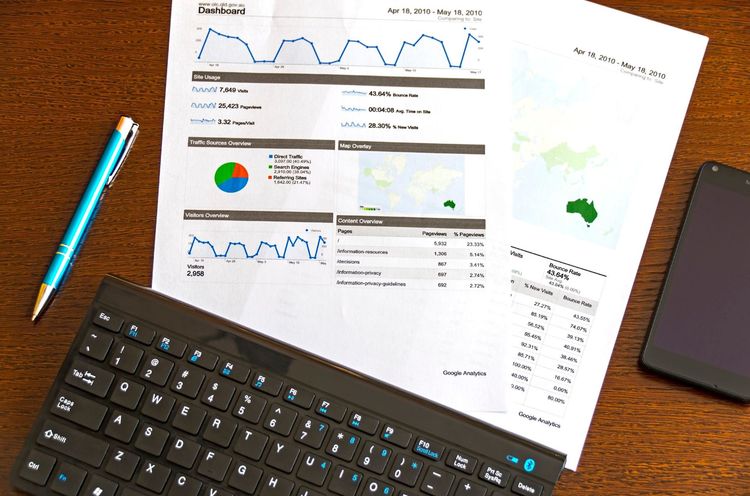Implementing an effective reporting system
- Reporting: balancing quality and transparency
- The right tools for writing a report

Reporting is a Business Intelligence tool that serves to collect, process, store, and present information within a company. Creating reports reduces complexity by gathering essential financial and operational information in one place.
Why reporting?
It makes data easily accessible to specific target groups and stakeholders, serving both internal and external purposes. Company and environmental information is processed as a report, hence the term “reporting.” The nature of reports varies, but tables and charts are commonly used for presentation. It’s important to make data accessible and clear for users.
Reports can include financial statements, sales reports, market analyses, and other information that help investors, shareholders, employees, and regulators understand the company’s performance and future. Reporting is crucial as it forms the basis for informed decision-making and helps businesses become more transparent and trustworthy with stakeholders.
Types of reports
Formal or informal
A formal report is an official document, usually well-structured and intended for experts or external supervisors. Informal reports, on the other hand, are often written in a more comfortable, natural language and are typically meant for non-specialists or internal use.
Informative or analytical
Informative reports provide data, facts, comments, and other information without analysis or recommendations. Analytical reports, however, attempt to solve problems by offering information, analysis, and recommendations.
Periodic reports
Periodic reports are used to record data and summarize results on a regular basis—daily, monthly, annually, or at user-defined intervals.
Functional reports
Reports can be categorized as accounting reports, financial statements, marketing reports, sales reports, project reports, etc., depending on their function.

Tools used for reporting
Reporting is time-consuming and often requires significant effort. Here are some tools you can use in your workflow when creating reports:
Task management tools
A task management tool helps teams track, complete, and collaborate on work asynchronously. Some, like Trello, resemble a large board covered with notes. Others, like Wrike and Jira, use more advanced project management methods to distribute work.
Many of these tools have features that make reporting easier, such as time tracking and built-in health reports.
Database and spreadsheet tools
These tools have been around for a long time and are now part of office culture. Microsoft Excel, the classic spreadsheet, is a powerful tool for building databases and collecting data, but there are many alternatives. Spreadsheets are the preferred method for reporting and presenting quantitative data. Whether you’re reporting budgets, sales statistics, or conversion rates, your spreadsheet should be part of your data stack.
Business Intelligence tools
Business Intelligence tools allow you to extract data from multiple sources, transform it, and analyze it. For example, tools like Looker help you view metrics from your payment platforms, websites, and marketing channels to report on the effectiveness of your campaigns. These aspects all contribute to effective reporting. Business Intelligence tools may not always give you better visibility on specific projects, but they do provide a broader overview.
CRMs
Sales teams use CRMs to track deal closing and find new prospects. Many CRMs, like HubSpot and Salesforce, have powerful reporting capabilities. They can generate sales reports and growth metrics using an advanced report editor that analyzes and reports on CRM-related activity.
In short, reporting is an important process for businesses as it provides clear and reliable information about performance and future outlook. It’s essential to ensure the quality and transparency of the information provided in the report and to maintain stakeholder trust. However, reports can be complex and must overcome challenges such as legal obligations and collecting reliable data. Despite these challenges, reporting remains fundamental for making informed decisions and improving transparency in the business world.
Ready to boost your productivity with Leexi?
Leexi AI Notetaker takes notes for you